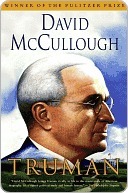More on this book
Community
Kindle Notes & Highlights
Salus populi suprema, est lex, “The people’s good is the highest law.”
He talked of the capitalist domination of government in bygone Republican times, praised the determination of FDR to end the “rule of the rich” and give the average American a chance. Ninety percent of the wealth of the country was in the hands of 4 percent of the population,
It was the same everywhere, he found. Millions of dollars were being squandered. Had there been such mismanagement of federal help for the poor and unemployed a few years earlier, he thought, the outcry would have been overwhelming. As it was, no one seemed to care or to be saying anything. If national defense was the issue, the sky was the limit.
Their present oppressors must know that they will be held directly accountable for their bloody deeds. To do all this, we must draw deeply on our traditions of aid to the oppressed, and on our great national generosity. This is not a Jewish problem, it is an American problem—and we must and we will face it squarely and honorably.
In a political, educational and economic sense, there must be no inferior races. The poll tax must go. Educational opportunities must come. The future must bring equal wages for equal work regardless of sex or race. . . .
He asked for national compulsory health insurance to be funded by payroll deductions. Under the system, all citizens would receive medical and hospital service irrespective of their ability to pay.
“It is the policy of the United States to support free peoples who are resisting attempted subjugation by armed minorities or by outside pressures,” the line read in its original state. Acheson changed it to, “I believe it must be the policy of the United States. . . .”
Louis J. Halle, later said of Truman that he had in Marshall a soldier of the highest prestige, in Acheson a man of both commanding intellect and fierce personal integrity who at critical moments, like Truman, was willing to risk his own career rather than abstain from doing what he conceived to be right, and in Kennan a man of Shakespearean insight and vision.
a massive housing program, increased support for education, increased support for farmers, the conservation of natural resources, and a raise in the minimum wage from 40 to 75 cents an hour. To compensate for rising prices, he proposed a “poor man’s” tax cut, whereby each taxpayer would be allowed to deduct $40 for himself and for each dependent from his final tax bill.


